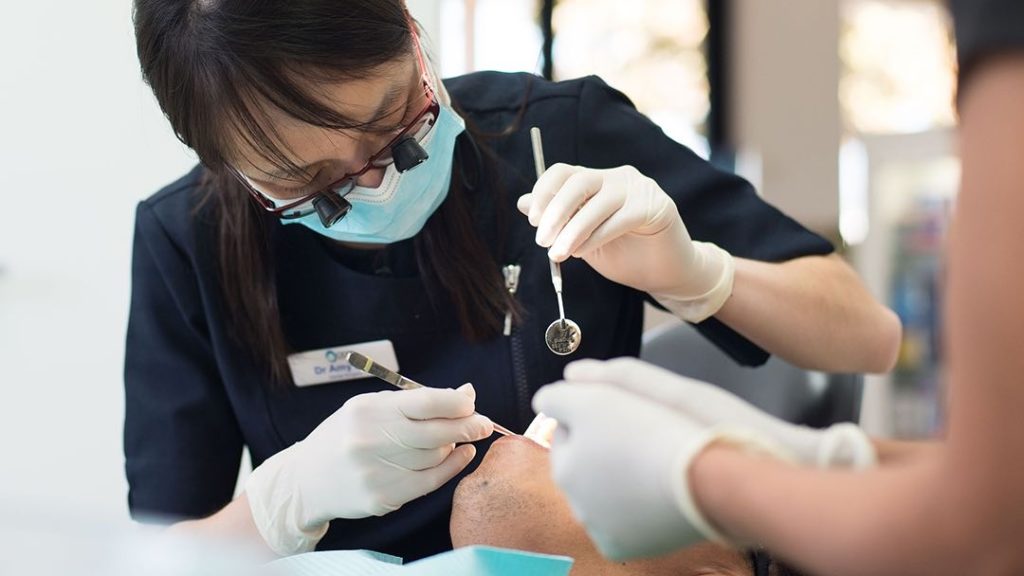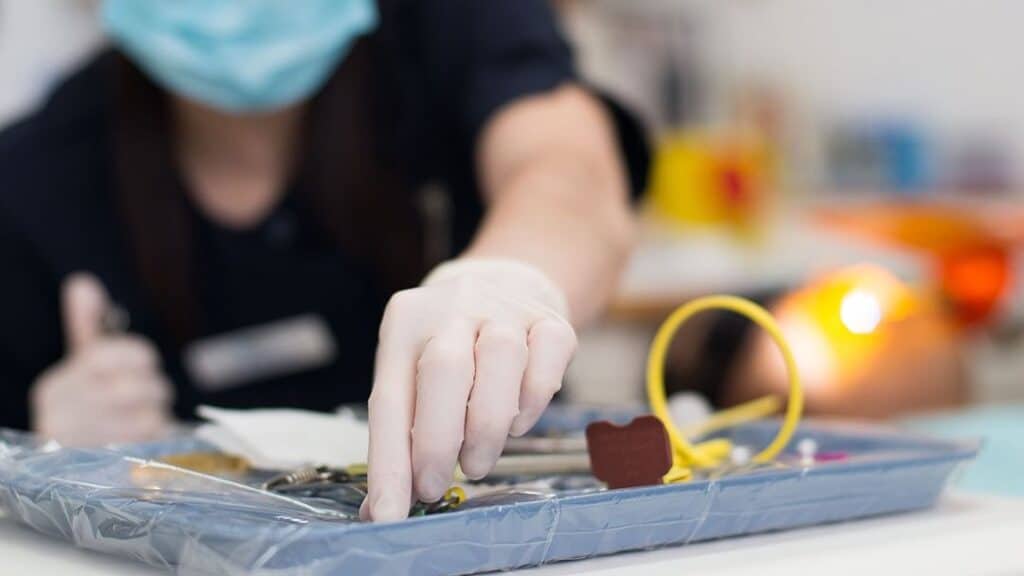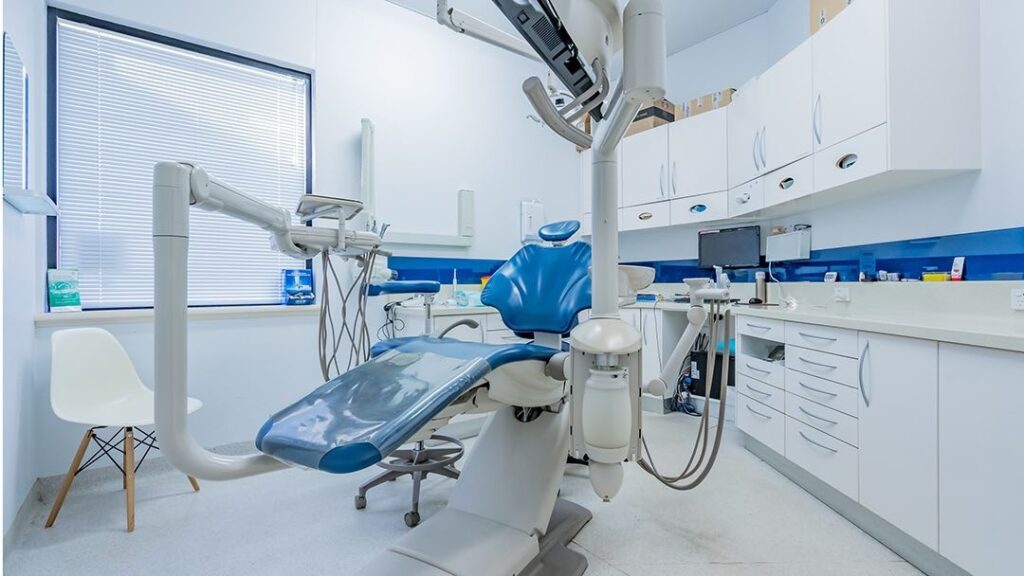
What Constitutes A Dental Emergency?
What Constitutes A Dental Emergency?
Dental emergencies can be some of the most painful experiences. When our teeth or gums aren’t feeling right, it’s hard to concentrate on anything else. But how do you know when your toothache is a true dental emergency? What constitutes a real “emergency” and what should you do if you find yourself in that situation? Read on to learn more about the signs and symptoms of a dental emergency and the steps you should take to address them safely.
When we think of an emergency, we often envision something dramatic like a broken bone or cardiac arrest. However, many people don’t realize that certain oral conditions may also constitute a medical emergency as well. Severe pain, swelling, infection, bleeding and trauma are all considered potential indicators of such an event. If these symptoms occur suddenly or last for an extended period of time, immediate attention from a qualified dentist is typically necessary.
If you suspect that you might have experienced a dental emergency, contact your local dentist immediately! They’ll work with you to determine whether it’s truly an urgent issue or if other options exist for addressing your problem first. The key takeaway here is not to ignore any possible warning signs- seeking prompt treatment could be the difference between saving or losing a tooth!
Defining A Dental Emergency
A dental emergency can occur when a person experiences sudden, extreme tooth pain or has an infection in the mouth. This type of situation is often caused by trauma to the teeth and gums, such as chipped or broken teeth, a lost filling, or an abscessed tooth. These types of incidents require immediate attention from a dentist to prevent further damage and discomfort.
In many cases, it is possible to differentiate between a minor incident that requires only routine care and true emergencies where prompt treatment is necessary. For instance, if someone is suffering from severe toothache due to decay or infection then this would be considered an emergency because the longer it goes untreated the worse it could become for them. Similarly, a tooth abscess – which occurs when bacteria gets trapped inside the root canal – can cause intense pain as well as swelling around the area; thus making it an urgent matter that needs professional help right away.
On the other hand, there are certain issues like mild sensitivity to hot or cold temperatures that may not constitute as an emergency but still should be addressed nonetheless since they might indicate underlying problems with your oral health. Ultimately, it’s best to contact your local dentist at once whenever you experience any sort of sudden discomfort in order to avoid any potential complications down the road.
Typical Symptoms
A dental emergency typically involves a severe toothache, a wobbly tooth or extreme tooth pain. These symptoms can make it difficult to perform everyday activities and should be addressed immediately by a qualified dentist.
A common symptom of a dental emergency is severe toothache that may have been caused by an infection or decay in the tooth. The pain could range from mild discomfort to sharp, throbbing sensations. In some cases, the pain might also radiate into other parts of your mouth or face. If you’re experiencing any type of intense oral pain, seek medical attention as soon as possible.
Uncontrollable bleeding could be another sign that you’re dealing with a dental emergency. This symptom usually indicates damage to gum tissue which can occur due to trauma or periodontal disease progression. While it might not seem like a serious problem at first glance, uncontrolled bleeding should still be treated right away since it can lead to complications down the line if left untreated.
Lastly, any sort of dental trauma is considered a dental emergency since this type of injury can cause significant damage to teeth and soft tissues in your mouth. Common examples include chips and cracks on teeth resulting from sports injuries or falls as well as knocked-out teeth due to blunt force trauma or contact sports accidents. It’s important to seek medical attention quickly in order to minimize long-term effects such as infection and further decay.
It’s important to recognize when you’re experiencing any of these symptoms so you can seek professional help right away:
- Abscesses
- Pain
- Sensitivity
- Loose Tooth or Loose Teeth
- Uncontrolled Bleeding
- Facial Swelling
Without proper treatment, these conditions can worsen and lead to further health complications. Seeking medical advice promptly will ensure that your condition doesn’t become more serious than it needs to be.
In short, if you experience any kind of severe oral discomfort accompanied by swelling or bleeding around the affected area then consider seeking out urgent care at your local dental surgery. Ignoring these signs could lead to more serious problems in the future.
Diagnosis And Treatment Options
In order to diagnose and treat your dental emergency, you’ll need to visit an emergency dentist. Emergency dentists, such as the ones at Odin Dental, can provide same-day care for urgent issues such as infections or broken teeth. They also specialize in providing treatments like root canal therapy and tooth extractions which can alleviate intense pain quickly and effectively. Additionally, they are trained to handle trauma cases where multiple teeth have been damaged due to an accident.
Emergency dental care services vary depending on the type of problem being addressed. For example, if you’re experiencing severe toothache then the dentist will likely perform X-rays and other diagnostic tests in order to determine what’s causing it before prescribing medications or performing a procedure such as a filling or extraction. On the other hand, more serious situations such as broken teeth may require additional treatments like crowns or bridges in addition to a tooth extraction.
No matter how minor or major your dental emergency might be, it’s important to act fast and contact an experienced emergency dentist who has experience dealing with these types of problems so that you can find relief and restore your oral health soon.
Knocked Out Tooth
A knocked out tooth may require extraction if it cannot be successfully reattached within two hours of being removed from its socket in the jawbone. If more than two hours have passed since the incident, then additional steps must be taken in order to attempt saving the tooth. In some cases, depending on age and health status, teeth can still be saved even after extended time has passed since they were initially lost.
Regardless of how much time has elapsed since a knocked-out tooth occurred, patients should seek appropriate medical care as soon as possible. This will help ensure that any underlying damage caused by the trauma is identified and treated before it leads to further complications down the line. By taking action quickly, it may also increase chances of successful restoration of a tooth using restorative techniques such as root canal therapy or implant placement procedures.
Extreme Tooth Pain
Extreme tooth pain is a common symptom of many dental emergencies. Severe, persistent and radiating oral discomfort can be due to an infection, abscesses, or fractures in the teeth. Patients suffering from this kind of excruciating pain should seek emergency dental treatment as soon as possible. This will help reduce their risk of further complications such as tooth loss due to decay or trauma.
The most important thing for those dealing with extreme tooth pain is to visit a dentist right away. A professional exam and X-ray are necessary to determine the cause and create an appropriate plan for treatment. Depending on the condition, options may include root canal therapy, antibiotic medications, extraction of a damaged/decayed tooth, or even surgical interventions. Whatever the case might be, seeking timely care ensures that any potential risks associated with your particular condition are minimized or avoided altogether.
Abscesses And Swelling
Abscesses and swelling are two types of dental emergencies that require prompt attention. An abscess is a pocket of infection in the mouth, commonly caused by bacteria or food particles becoming trapped between teeth or under gums. Symptoms include pain, sensitivity to hot or cold temperatures, bad breath and swollen glands around the face and neck. If an abscess is not treated quickly with antibiotics it can cause severe damage to bone and surrounding tissue.
A loose tooth may also be considered an emergency if there is uncontrolled bleeding from the socket where it has come out. This can occur due to trauma such as a blow to the face causing extensive damage to the underlying bones. A dentist should assess any facial swelling immediately as this could indicate other serious issues such as sinusitis or temporomandibular joint dysfunction (TMJ).
Chips, Fractures, And Cracks
Chipping, fracturing and cracking of teeth is a serious dental emergency. In the case of chips or fractures, pieces of enamel have broken off from the tooth. This may lead to pain as well as sensitivity when eating or drinking hot or cold items.
Chips can also occur due to trauma such as biting down on hard objects like stones or bones. Fractures can be caused by either a direct blow to the face or grinding while asleep at night due to stress and anxiety. Cracks can range in size from shallow cracks that are barely visible to more serious deep cracks which often penetrate beyond the enamel into the dentin layer beneath it.
Regardless of severity, all types of chips, fractures and cracks need to be treated quickly by a dentist in order for them not to worsen over time. Treatment depends on how severe the damage is but typically involves bonding material being used to fill in any gaps created by the chip/fracture/crack followed by polishing so that no further deterioration occurs.
Contact Odin Dental For Any Emergencies
At Odin Dental, we understand that dental emergencies can occur without warning. A dental emergency is any situation where sudden and severe pain or discomfort in the mouth requires urgent care from a dentist. Common types of dental emergencies include broken teeth, soft tissue injuries (such as lacerations), and abscesses. If you’re experiencing any of these symptoms, contact us right away – we’ll provide an emergency exam to diagnose your issue and develop a plan for treatment.
When it comes to providing prompt service during such a stressful time, our team has what it takes. We offer same day appointments, and our staff will take the necessary steps to ensure that you receive the best possible care with minimal wait times and maximum comfort throughout the process.
We strongly encourage patients who think they may be having a dental emergency to seek immediate help rather than trying to treat their condition themselves at home; this could potentially worsen existing damage or lead to further complications down the road. So don’t hesitate – if you’re in pain now and require medical attention, give us a call today!
If you experience any of the common causes listed above such as a knocked out tooth, extreme tooth pain, abscesses or swelling, chips fractures or cracks, then contact Odin Dental immediately for treatment. Acting quickly is essential in most cases to prevent further damage or complications with your teeth and gums.


